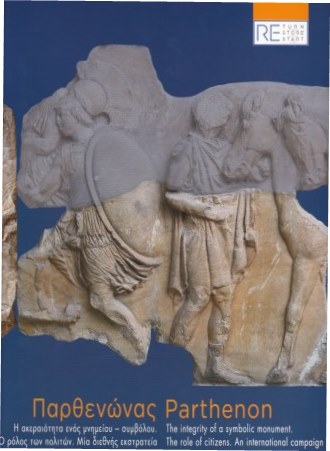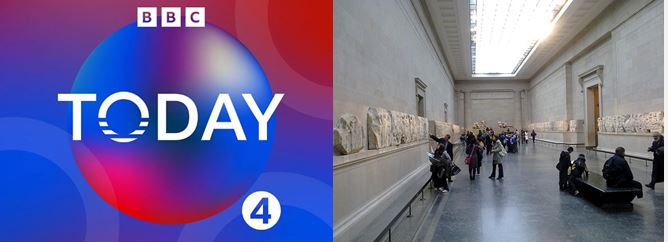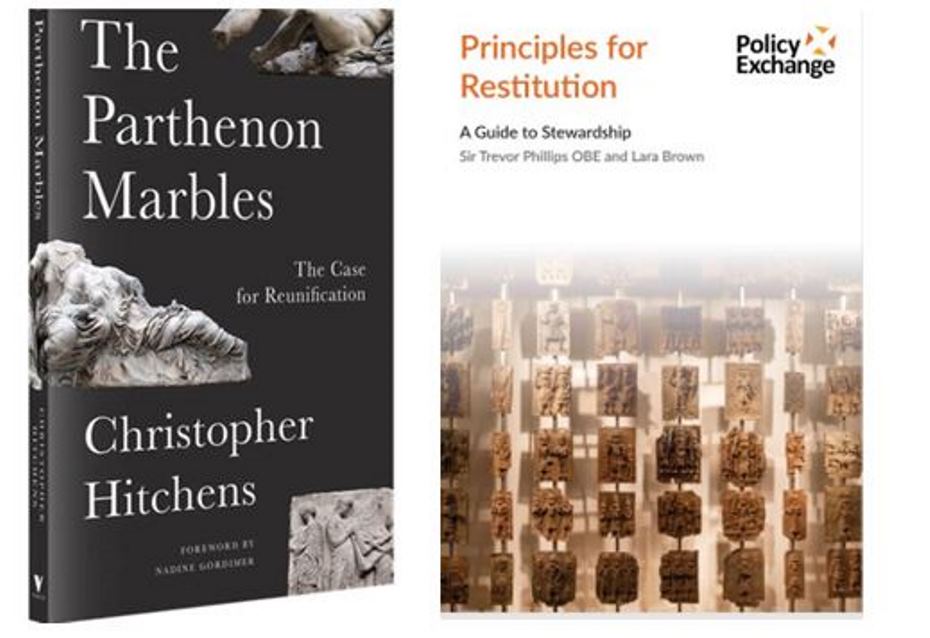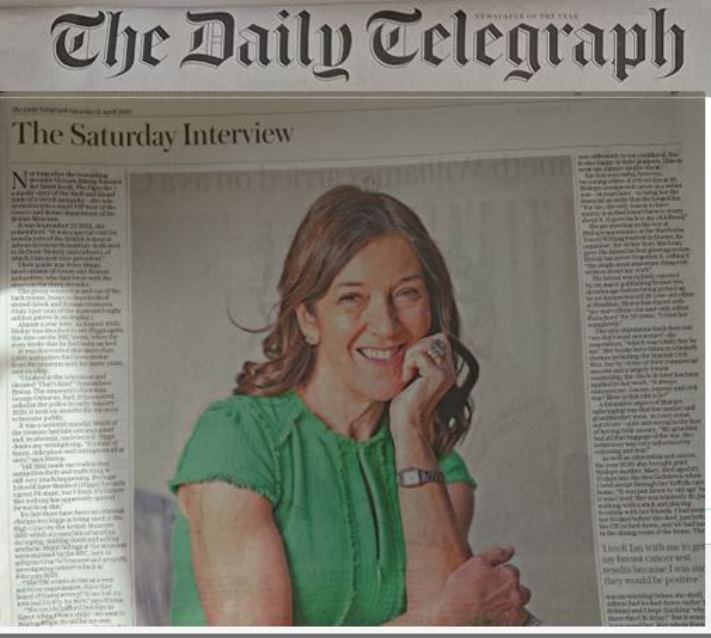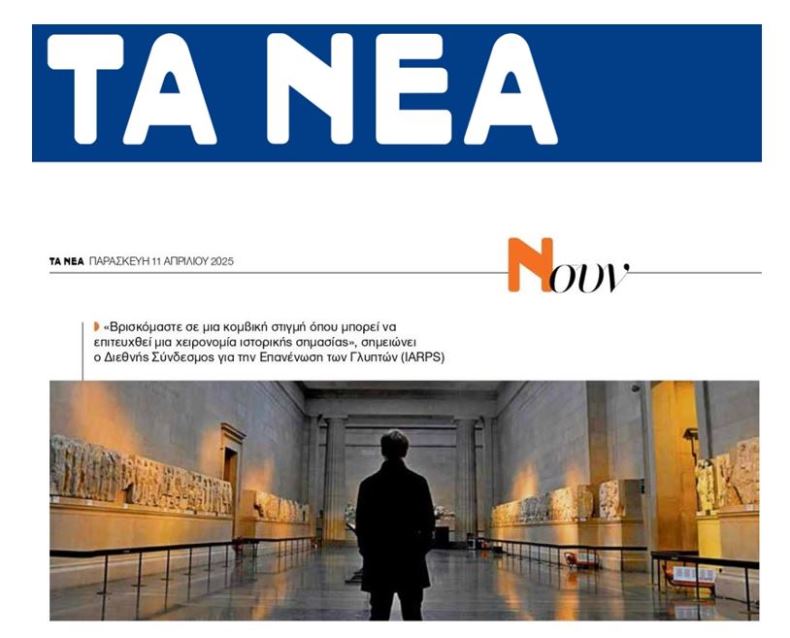It was a Tuesday, 01 August, an overcast and grey day on Parliament Street. Plenty of tourists on the wide sidewalks plus George Gabriel, Stuart O'Hara, and Marlen Godwin of BCRPM with Sofia Eleftheriades representing Greeks in UK, and Constance Kampfner from the Times with Lucy Young, the photographer for the paper.
The security staff outside the DCMS were very pleasant but did not allow us to deliver a cheque for 35K, crowdfunded for a symbolic gesture by the British Committee for the Reunification of the Parthenon Marbles (BCRPM) to repay the UK Government the funds used to save the Marbles.
In 1816 with his creditors circling Lord Elgin sold the Marbles to the British Parliament for £35,000, who then placed them in the care of the British Museum.They have remained in the care of the British Museum for 207 years, and despite repeated requests by Greece for their return.
“This is about recognising and celebrating the important role the UK played in protecting these peerless works of art, while underscoring that the time has now come for them to be reunified at the foot of the monument they were so wrongly taken from.
Other countries and other museums around the world are returning their fragments, the British Museum is to be applauded for working towards a solution and now it is time for our government to support this too. We hope they will reconsider their position, accept this gift, and stand proud of the role the UK has played.” commented George Gabriel, Member of the BCRPM.
Avgoustinos Galiassos, membr of BCRPM added: “UK Prime Minister, Rishi Sunak, pointed to the important role the UK played in preserving the portion of the Marbles that were so appallingly hacked off the Parthenon by Elgin. As members of the Greek community in the UK, we want to recognise the UK’s contribution, while persisting in the clear and reasonable insistence that the time has come for the Marbles to be reunified in Athens.
This small financial contribution is our way of expressing thanks to the UK. It’s disappointing that DCMS have refused to accept this gift, indeed the refusal could be seen as bringing into question the government’s good faith regarding the Marbles.” Concludes Avgoustinos Galiassos.
To read the Times article follow the link here.
George Gabriel, of the British Committee for the Reunification of the Parthenon Marbles, is denied entry to Whitehall with the cheque
LUCY YOUNG FOR THE TIMES
Greece for a couple of decades now, has made many a generous offer to provide the British Museum with artefacts never seen outside of Greece. Other nations that had fragments made their returns including Heidelberg, Palermo and more recently The Vatican. Ongoing talks continue in Vienna and elsewhere.
Greece's efforts through UNESCO have spanned four decades, the culmination of the last fifteen years efforts resulting in the recommendation and decision taken in 2021 and 2022.
UNESCO’s Intergovernmental Committee for Promoting the Return of Cultural Property (ICPRCP) voted unanimously for the first time at its 22nd session to include the return of the Parthenon Marbles in its decision document, marking a major step forward since Greece first introduced the request to the meeting’s agenda in 1984.
At UNESCO's ICPRCP 23rd session, in May 2022, the UK represented by Helen Whitehouse from the DCMS and Jonathan Williams from the British Museum, looked out of step with the pressing request for dialogue on on this matter.
It was uplifting to then read, this time last year, and in the Sunday Times, an article by Sarah Baxter, where Jonathan Williams, deputy director of the British Museum, is quoted: “What we are calling for is an active ‘Parthenon partnership’ with our friends and colleagues in Greece. I firmly believe there is space for a really dynamic and positive conversation within which new ways of working together can be found.”The unanimous message of UNESCO ICPRCP's meeting that had been held just two months earlier in Paris, had been heard.
The UK and Greece are talking, and we continue to look forward to the day when the reunification of the Parthenon Marbles becomes a celebrated event. An event highlighting global respect for cultural heritage, and a specific request by a country of origin, Greece, for the Parthenon's peerless sculptures to be viewed in the context of the temple, which has crowned the city of Athens for two and half millennia, and continues to do so.



